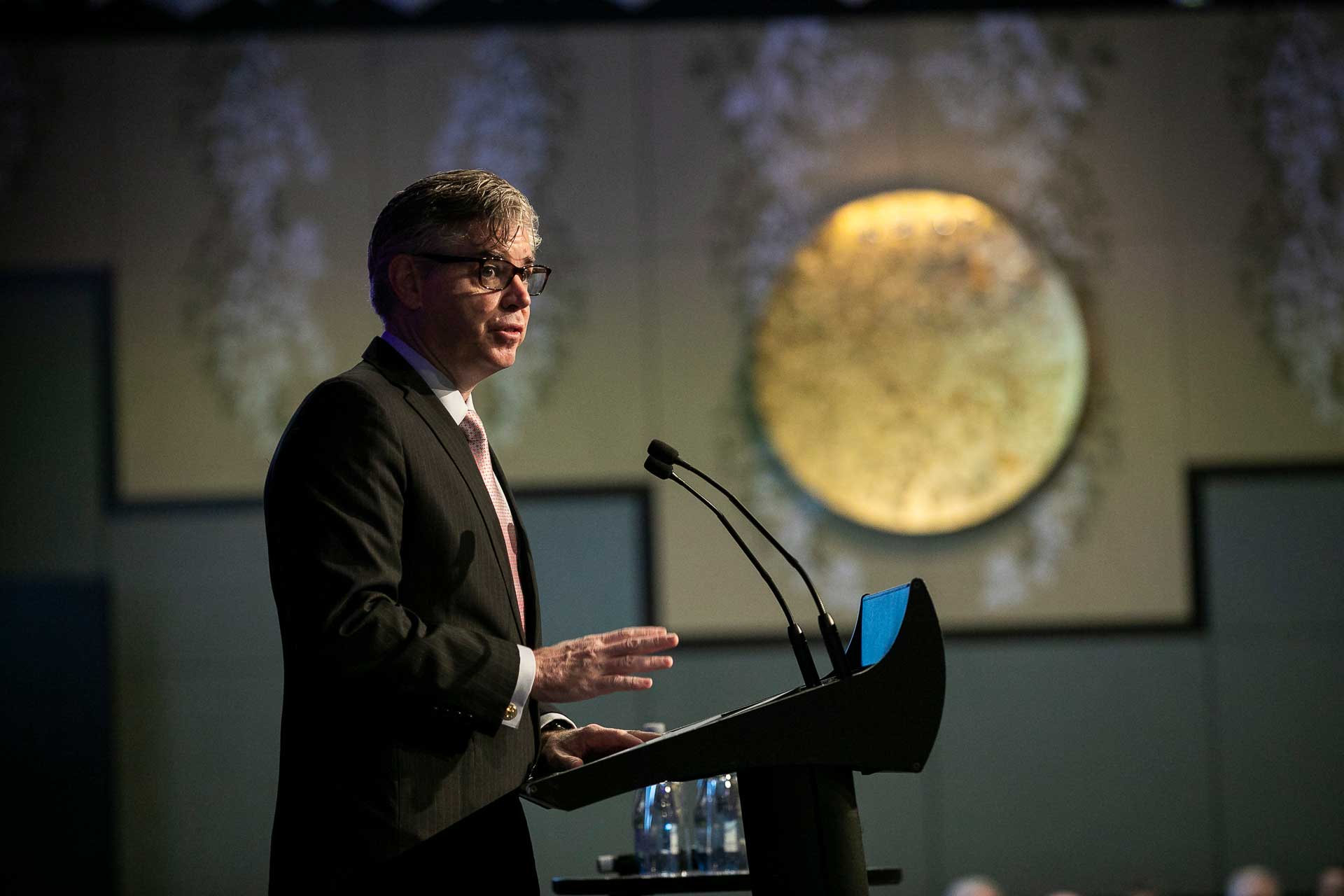<< Back to Lion Homepage
Principal's lines

One of the new terms that has emerged over the course of the current pandemic is ‘doomscrolling’, which refers to the incessant search for worse news regarding the pandemic in particular, and the state of the world in general. There are moments in every lockdown when it is hard to resist.
I indulged myself in some high-end doomscrolling in one of the lockdowns in Melbourne. I read the book Premonition by Michael Lewis, well-known as the author of Moneyball and The Big Short. The book tells the terrifying story of the lack of preparedness within the United States for a major pandemic. The results of this lack of preparedness are, of course, only too obvious now.
The book looks at a small group of people; those who see the pandemic coming. These people provide the premonition of the title but could find little traction within the US Federal Government. Many resorted to methods which worked around the system.
One of the major problems, according to Lewis, is that the United States government consists of various agencies, all dedicated to addressing specific problems. Each agency acts as an individual box, within which experts in the specific problem dutifully create a culture around it. Each agency, over time, becomes its own ‘small, frozen world’ with no ability to see outside their own area. Group think becomes the norm. Orthodoxies grow… It took people from outside this system to break down the orthodoxies and respond accordingly to the broad challenges COVID-19 created.
Those outsiders working to circumvent a frozen system showed extraordinary moral courage and determination. That there was any response to the pandemic in the United States at all was, in large part, due to their efforts.
It sparked in me memories of a similar story, albeit about a very different war. When I spent a year working in the United States at a school called Northfield Mount Hermon, I was told of an alumnus named Neil Sheehan. He was the journalist who published the Pentagon Papers in The New York Times in 1971 which revealed a range of secrets the US Government was attempting to keep about the conduct of the Vietnam War. He resigned from the Times to write a book about the war, A Bright Shining Lie. In it, Sheehan identifies similar ossified thinking within the US Army.
The senior officers in the 1960s were comparatively junior officers during the Second World War and could not conceive, after the victory in 1945, of the US Army being defeated by anyone, let alone an apparently rag-tag group of guerrillas such as the Vietcong. Therefore, all evidence that they were actually being defeated was not simply covered up but ignored, or worse, manipulated to fit the view of the world the generals had. The North Vietnamese themselves were mystified. They could not understand how the US generals could be so uncomprehending. They assumed the confidence the US evinced was only for propaganda purposes and that the authorities in the US knew the war was unwinnable. But they didn’t.
Once again, there was a small group of army officers and young journalists who attempted to shine a light on this misapprehension. They did so at some cost professionally and personally. As we know with the benefit of hindsight, it was to no avail. The war continued, at the cost of over one million lives. The danger of accepting an orthodoxy, of thinking there is only one way to solve any problem, is a dangerous comfort. It is comforting because the answer is clear. It is dangerous because the apparently clear answer can often be wrong. Any organisation, any society, requires the existence of people who question orthodox views, who can think imaginatively and who can show the moral courage necessary to hold firm to views that are unfashionable and potentially unpopular. Ideas can be unfashionable and unpopular but still be right.
How do we educate people to be independent thinkers with the moral courage needed to hold true to their views regardless of opposition? Perhaps the best thing schools like Wesley can do is encourage those in our charge and those who work here to have the courage of their convictions and to express them with intelligence and passion. All those in positions of responsibility and authority have to do in return is show the respect of listening.
One day, our lives may depend on it.
Nick Evans (OW1985)